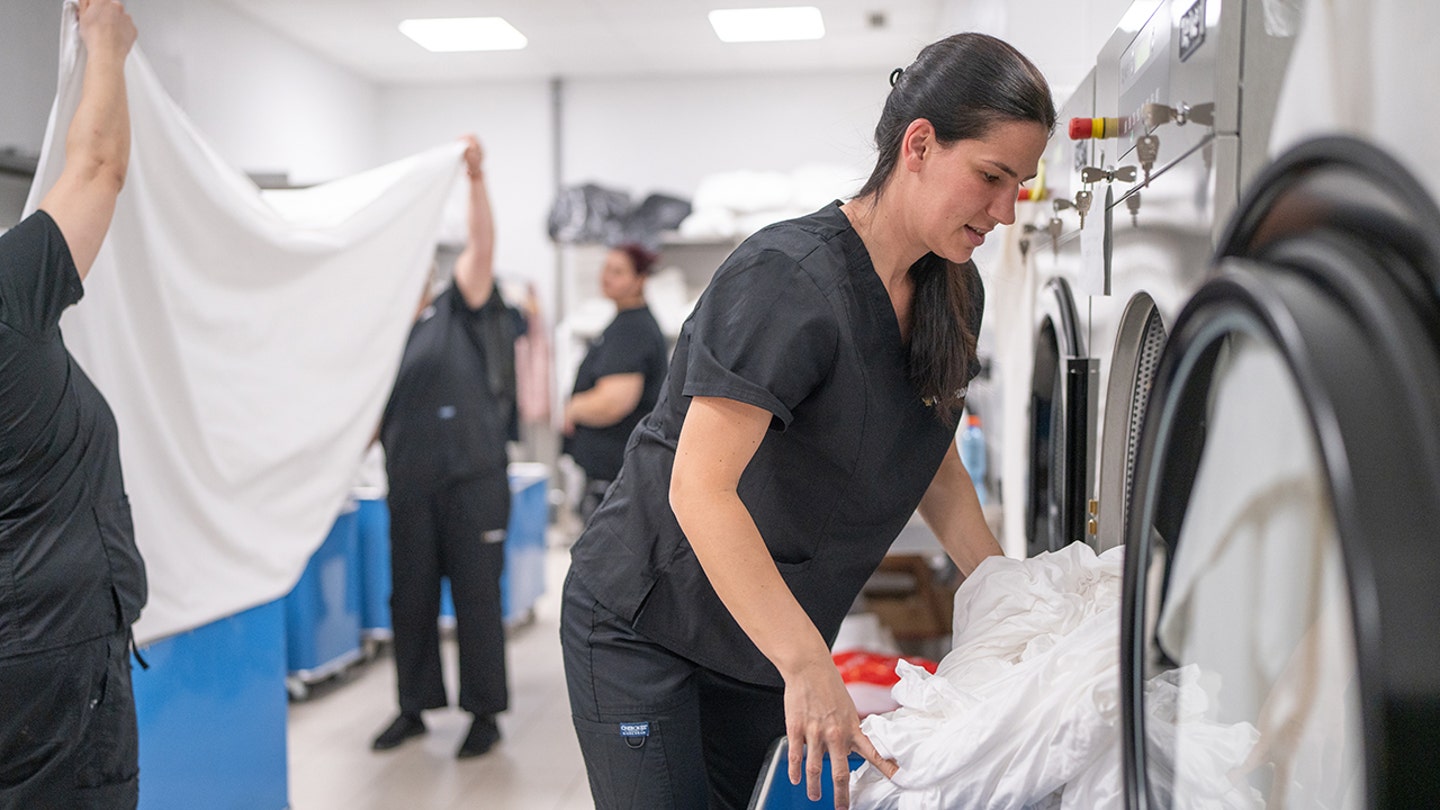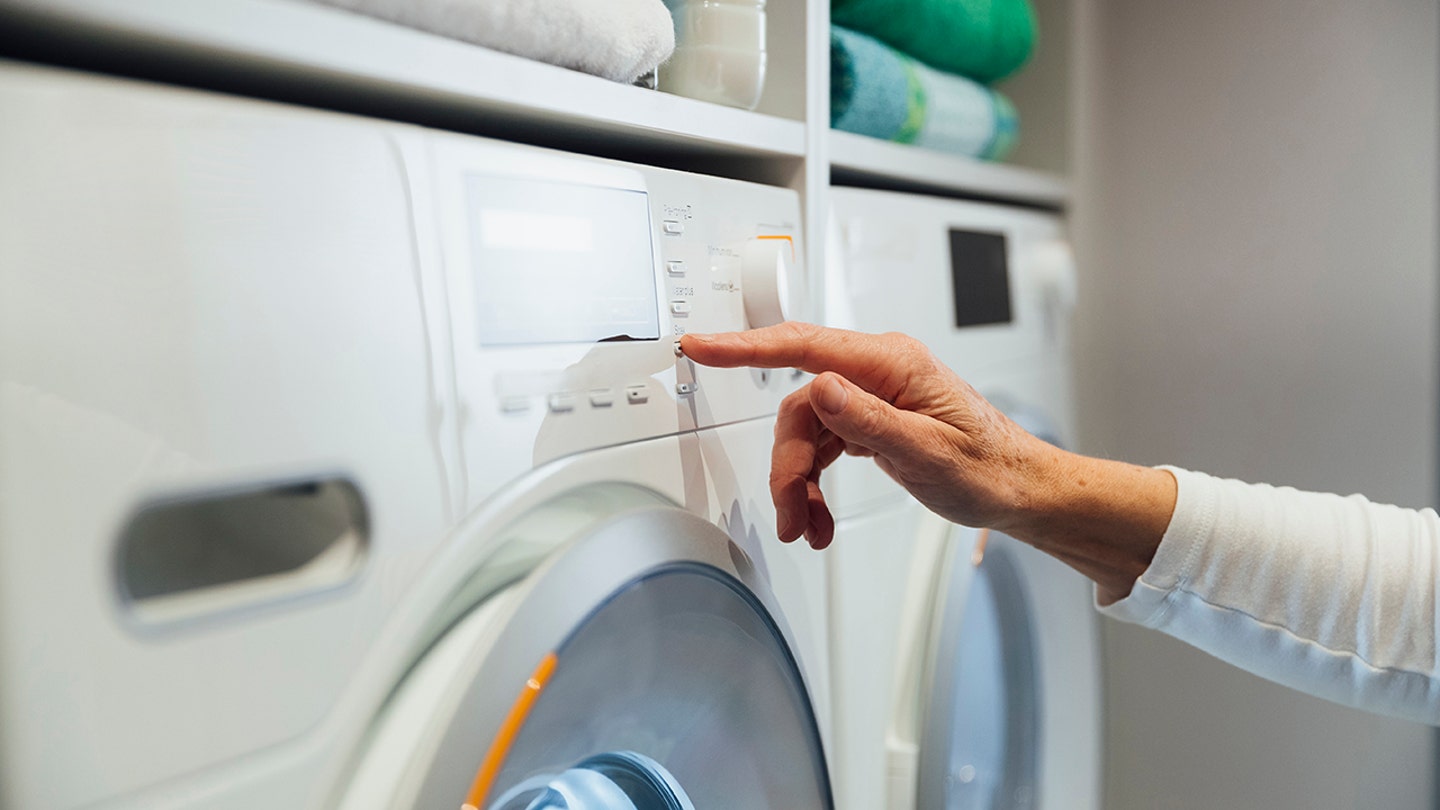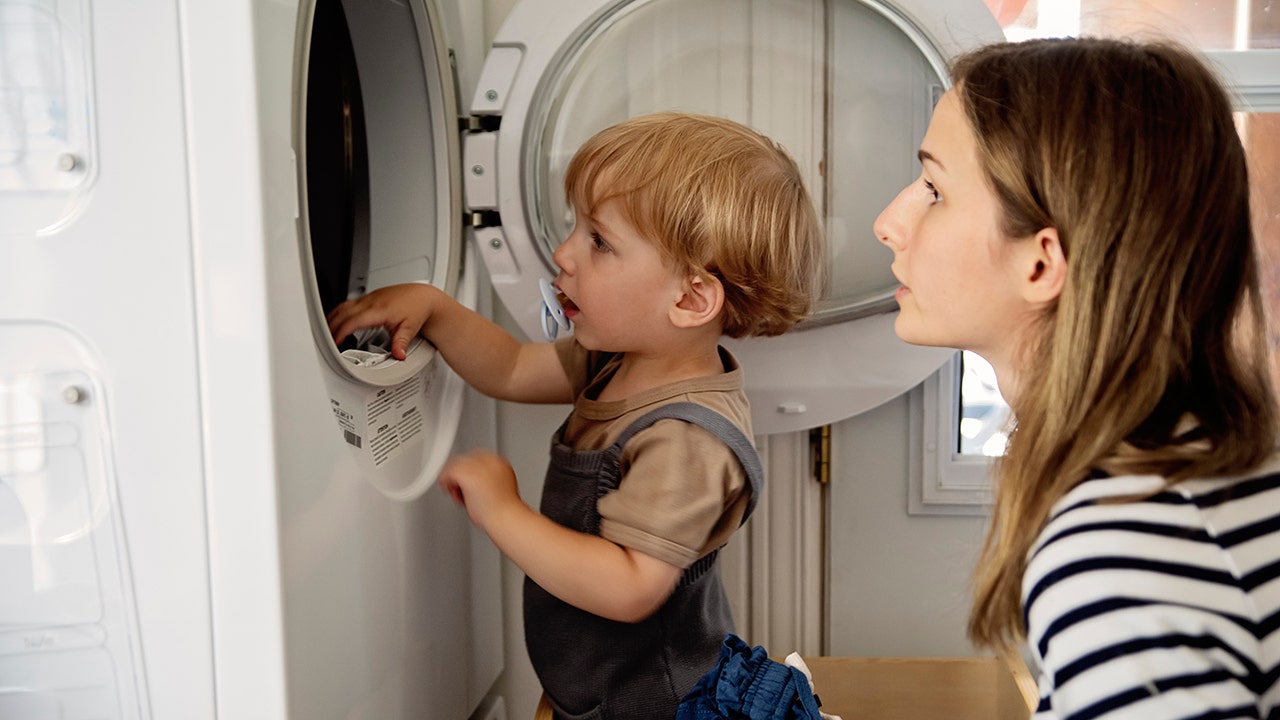Tossing in a load of wash at home sounds ordinary and harmless.
But healthcare professionals who wash their work uniforms at home may be unknowingly spreading superbugs, according to a new study.
Professor Katie Laird of De Montfort University Leicester, a public university in England, tested home washing machines in a study and found the machines failed to remove potentially harmful material, even after running a hot water setting at the equivalent of 140 degrees Fahrenheit.
SHAMPOO RECALLED FOR BACTERIA CONTAMINATION THAT COULD CAUSE INFECTION
“Our research highlights that domestic laundering of healthcare textiles may not consistently eliminate harmful bacteria, including antibiotic-resistant bacteria,” Laird told Fox News Digital.
The team tested six different models of washing machines to see how well they cleaned fabric contaminated with bacteria that can cause a variety of health conditions.

Healthcare professionals who wash their work uniforms at home may be unknowingly spreading superbugs, according to a new study. (iStock)
Half of the machines did not disinfect the clothing during a rapid cycle — while a third of them failed to clean sufficiently during the standard cycle.
Laird, a professor of microbiology in the School of Pharmacy and head of the university’s Infectious Disease Research Group, said the finding “highlights potential risks associated with laundering healthcare uniforms at home, particularly concerning the spread of antimicrobial resistance (AMR) within community and hospital settings.”
A COMMON KILLER BUG IS ENDANGERING AMERICANS: ‘PANDEMIC IN PLAIN SIGHT’
In addition, this could mean home washing machines are a hub for antibiotic-resistant bacteria.
Domestic detergents could even potentially create antibiotic-resistant strains of bacteria, according to Laird.
Even if healthcare workers followed all washing guidelines, half the machines in the study didn’t reach the correct temperature, the study found.

Healthcare professionals and their institutions should consider re-evaluating policies that allow workers to wash their work clothing at home, said a professor of microbiology who oversaw a new study. (iStock)
“What this means is that even if healthcare workers are following all the guidelines to domestically wash their uniforms, they will still not be reaching the disinfection level required to remove all pathogenic bacteria,” the professor said.
Potential limitations and fixes
The study was conducted with non-healthcare personnel, so the bacteria on that clothing may differ from the clothing of those who work in healthcare settings.
NEW CLASS OF ANTIBIOTICS DISCOVERED: ‘PROMISING ANSWER’
Potentially, however, the latter would see higher levels of “pathogenic and antibiotic resistant strains in healthcare workers’ domestic washing machines,” the professor said.
Laird recommended that healthcare professionals and their institutions re-evaluate policies that allow workers to wash their work clothing at home.
For more Health articles, visit www.foxnews.com/health
“Implementing standardized in-house laundering within healthcare facilities or using external industrial laundries will enhance infection control measures,” she said.

Half of the machines did not disinfect the clothing during a rapid cycle, while one third failed to clean sufficiently during the standard cycle. (iStock)
Due to at-home machines not functioning as they should, per the study, the research team recommended using a disinfectant for those washing machines at least once a month.
CLICK HERE TO SIGN UP FOR OUR HEALTH NEWSLETTER
They also recommended doing an empty wash in the machine to disinfect it at a temperature of approximately 194 degrees Fahrenheit.
“For individuals laundering at home, it’s crucial to adhere strictly to guidelines, such as using appropriate temperatures and detergents, to minimize risks,” Laird told Fox News Digital.
CLICK HERE TO GET THE FOX NEWS APP
The team also said that effective laundering practices are a critical component, but that these should be part of a multifaceted approach.
They should “includ[e] prudent antibiotic use, robust infection control measures, and public education on hygiene practices and antimicrobial resistance,” she said.

